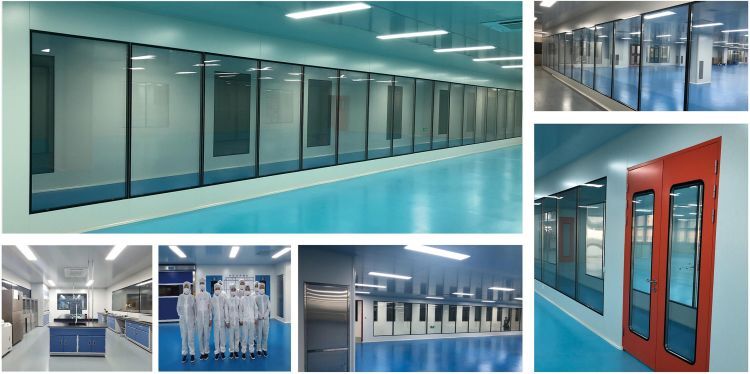The Importance of Cleanroom Maintenance
- 2024-01-31
- View 14
To ensure reliable and efficient day to day running of your facility, scheduled cleanroom maintenance is essential.
The Importance of Cleanroom Maintenance
Unplanned downtime due to breakdowns and faults can prove to be expensive, costing dearly in both time and resources, possibly reducing shelf life and maybe even involving wastage of time critical samples and materials that were to be worked on.

Ensuring regular cleanroom maintenance and conducting preventative maintenance will reduce the incidence of plant failure and production downtime. keeping your operations running smoothly. By appointing multi-discipline contractors that can deal with a wider range of tasks in the same visit can reduce downtime significantly. An engineer with both electrical and mechanical experience will often diagnosis and repair a fault more swiftly in the unfortunate event that a breakdown does occur.
Regular maintenance procedures-daily, weekly, monthly, and quarterly-help ensure cleanroom compliance, no matter what the cleanroom class. For example, positive-pressure air should be running at full-flow in a Class 10 cleanroom for at least 30 min before cleaning to ensure clean, fresh air within the room. Cleaning starts at the highest point and works toward the floor. Every surface, corner, and ledge are first vacuumed, then damp-wiped with a cleanroom wipe. Operators wipe surfaces one way-either downward or away from themselves-since a "back-and-forth" scrubbing motion can create more particles than it removes. They also use a clean surface of the wipe or sponge with every new stroke to guard against redeposition of contaminates. On walls and windows, the wiping movement must be parallel to the airflow.
Floors are neither waxed nor buffed (materials and processes that contaminate the room), but are cleaned with a DI water and isopropyl alcohol mixture.
Cleanroom equipment maintenance also requires special procedures. For example, to prevent the spread of grease and to contain its airborne molecular contamination (AMC), equipment needing lubrication is isolated with polycarbonate shields. A fully gowned maintenance worker wears three pairs of latex gloves to perform this maintenance. After greasing equipment, the maintenance worker removes the outer glove, turning it inside out under the shield to contain the grease. If this procedure is not followed, the maintenance representative could leave grease on the door or other surfaces while leaving the cleanroom, and all operators who subsequently touched that doorknob would spread the grease and organic contaminates.
Some specialized cleanroom equipment also must be maintained, including HEPA filters and ionizing grids. Vacuuming HEPA filters every 3 mo removes particles. Recalibrating and cleaning ionizing grids every six months ensures the proper ion release rate Cleanrooms should be reclassified every 6 mo by confirming that the air particle count meets the cleanroom class designation.
Useful tools in contamination detection are air and surface particle counters. Air particle counters can check contaminant levels at set intervals or around-the-clock at varied locations. Particulate levels should be measured at activity centers where products would be-at tabletop height, near conveyors, and at workstations, for example.
Surface particle counters should be used to monitor operator workstations. If a product breaks, the operator can use this device after a cleaning procedure to determine if additional cleaning is needed. Air pockets and crevices where particles can collect should be given special attention.
Kwang offers a complete and comprehensive maintenance and repair service for all aspects of your clean room including the ventilation system, fixtures and fittings and constructional fabric such as floors, ceilings and furniture.
Cleanroom Maintenance – Kwang cleanroom maintenance services – meeting your operational needs quickly and efficiently.
